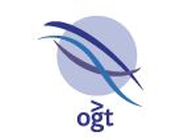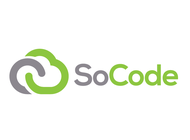Innovating for emerging markets
Life Sciences
- Date 18 Nov 2015
- Sectors Life Sciences
Laparoscopy systems enable surgeons to perform minimally invasive surgery via small incisions in the abdomen – reducing patient risk, complications and recovery time. But the sophisticated equipment designed for developed markets is expensive – state-of-the-art systems with 3D cameras and advanced tissue imaging can cost more than £100,000. Such systems are optimised for complex procedures in advanced operating theatres – and so require hospitals to have reliable power, gas lines and integrated electronic medical record (EMR) systems. Surgeons and their staff undergo several years of specialised training to use the equipment. And dedicated technicians are required to service, maintain and replace components.
Surgery in emerging markets is strikingly different. In India, for example, mid-tier and rural hospitals are overcrowded and understaffed, and struggle with limited infrastructure – electrical power can go down several times a week. On a daily basis, surgeons use equipment that ranges from brand new to 30 years old – but there’s a lack of adequate after-sales training or maintenance support. Surgeons must invest their own money to train on new devices, and then train their nurses and technicians. Hospitals and surgeons seek new products that are easy to learn, use and maintain – and that will enable them to treat more patients, more efficiently, with high-quality, affordable care.
The Ekano concept is tailored to address the unmet needs of surgeons in India. It was developed in Cambridge Consultants’ in-house simulated operating theatre, driven by insights gained from in-depth research in Indian hospitals. A team of the company’s product development and human factors engineers visited mid-tier and rural hospitals to observe surgical procedures and interview surgeons, nurses and hospital executives to identify unmet needs and innovation opportunities.
“We collaborated with surgeons and hospitals in India to drive product feature decisions, with the aim of preserving clinical functionality, improving usability and reducing the cost of ownership,” said Rahul Sathe, head of surgical innovation for emerging markets at Cambridge Consultants. “With the cost expected to be around a quarter of existing systems, Ekano can be owned by a surgeon rather than bought by a hospital – complementing the existing business model in India of surgeon consultants owning their own practices and rotating around hospitals on a daily basis.”
The Ekano console is self-contained and portable – and can be mounted on an IV pole to take up less space in the operating theatre. Size and cost are reduced by incorporating only the product features that are necessary for it to be clinically functional. For example, surgical planning, outcomes tracking and EMR systems are rare in mid-tier hospitals in emerging markets. So, rather than using a complex electronic data management system that takes up significant space, Ekano creates a WiFi hotspot to provide a local EMR for the surgical team. Surgeons can then upload preoperative images via their phone to enable surgical planning with their team – and share data via WhatsApp and other mobile platforms to collaborate with colleagues on challenging cases.
Ekano also takes a different approach to visualising anatomy. Rather than using expensive three-chip camera sensors, the camera system consists of a single-chip sensor that uses optical filtering and image processing to provide an optically comparable image at significantly lower cost. Ekano also replaces the traditional large, expensive xenon light sources that need frequent maintenance with a small, compact, LED array to achieve bright yet portable illumination.
“We envision the Ekano system using surgical tools with interchangeable tool tips to maximise functionality – in line with the focus in emerging markets on both economic and environmental considerations,” said Sathe. “Many surgeons and hospitals in emerging markets prefer not to use disposable surgical products – instead, giving purchasing priority to reusable systems and components. Designing surgical products that can be reused safely – via design for sterilisation and prevention of misuse – is crucial to reduce unnecessary waste and cost.
“Needs-driven innovation is key to unlocking business opportunities and advancing surgical care in emerging markets. Countries like India and China offer unprecedented scope for the surgical device industry to deliver quality, affordable care to underserved patients. The Ekano concept demonstrates how the combination of portability, durability, usability and low cost of ownership can disrupt how surgical care is delivered to underserved patient populations.”



